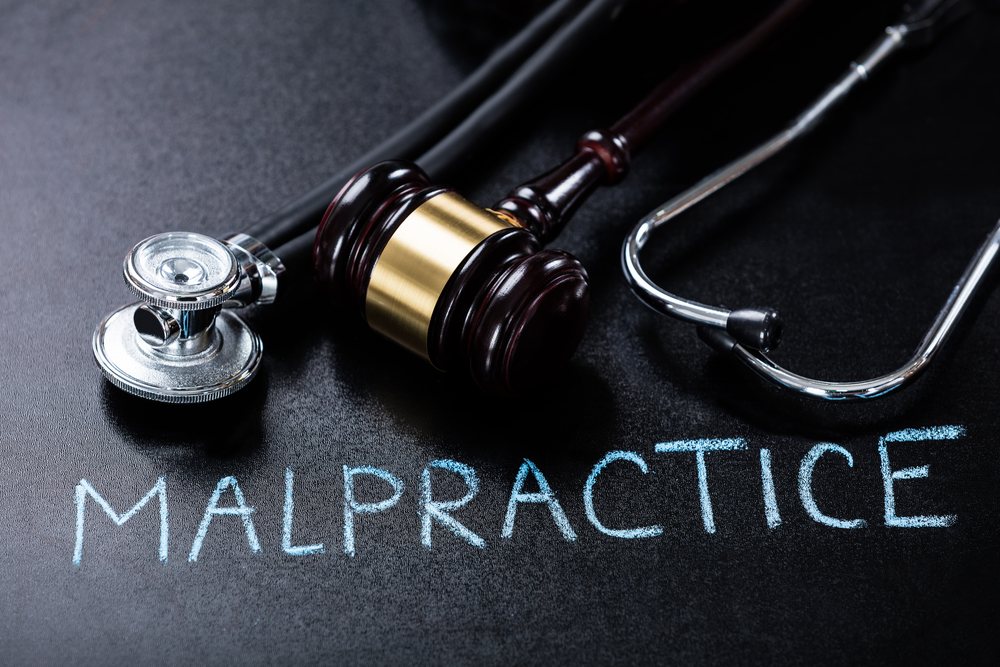
Ask a Lawyer: The 7 Most Commonly Broken Laws That Are Considered Medical Malpractice
When a medical professional agrees to treat you, they legally owe you a duty of care. This means their conduct must meet the reasonable standards that another competent doctor would be expected to provide under the same circumstances. Any breach of this duty of care may be considered negligence and medical malpractice. If you’ve been injured by any of the following seven common examples of medical negligence, a medical malpractice lawyer may be able to help you seek compensation.
Ask a Lawyer: The 7 Most Commonly Broken Laws That Are Considered Medical Malpractice
1. Misdiagnosis
When a doctor diagnoses a patient incorrectly, and the patient’s condition worsens as a result, the doctor may be held liable for malpractice. Misdiagnosis can be devastating and causes death or permanent injury in up to 160,000 patients every year.
Following a misdiagnosis, sometimes patients fail to receive the necessary treatment in time. And sometimes, they’re harmed by unnecessary treatment for a condition they do not have. As some conditions are difficult to diagnose correctly, the law is only considered to be broken by misdiagnosis when another doctor would have reasonably been expected to avoid the same error.
2. Delayed Diagnosis
Many medical conditions are time-sensitive and require treatment as early as possible to avert the worst outcomes. Delayed diagnosis is when the doctor takes too much time to diagnose the condition: they fail through negligence to diagnose the condition correctly within a reasonable amount of time.
Delayed diagnosis can result in the condition becoming untreatable or terminal, or it may require more invasive treatment than was required at an earlier stage. A doctor’s failure to run certain diagnostic tests, recognize symptoms or fully evaluate the patient and their medical history may all result in delayed diagnosis.
3. Failure To Treat
When a patient is correctly diagnosed in a timely manner but fails to receive proper treatment, the doctor may also be held legally liable for any resulting injuries. The doctor might be too busy, for example, neglecting the proper treatment of their patients.
They might fail to properly monitor a patient’s condition or forget to refer a patient to a specialist medical practitioner. If a doctor fails to inform the patient about the available treatment options, this may also be considered a failure to treat.
4. Surgical Error
Unfortunately, errors often occur relating to surgery. When surgical errors cause unnecessary injury and are due to negligence, the doctor or surgeon’s duty of care is considered to have been breached.
Common instances of surgical errors include performing the wrong surgical procedure, performing surgery on the wrong patient, or operating on the wrong part of the body. Unnecessary surgery, using unsterilized instruments, and leaving objects inside the patient are also frequent examples. Avoidable damage caused to organs, nerves, and other body parts during an operation can also be due to negligence.
5. Anesthesia Errors
Any mistakes made with local, regional, or general anesthesia can cause serious injury and a great deal of pain and suffering in the patient. Anesthesiologists are responsible for reviewing the medical history of the patient, communicating pre-operation instructions, administering the anesthesia, and monitoring the patient during and after the operation.
Any negligence on the part of the anesthesiologist can lead to breathing complications and pneumonia, severe lung injuries, nerve damage, organ damage, coma, or waking up during surgery. Any errors in communication, dosage, equipment usage, or monitoring may be considered malpractice.
6. Birth Injury
While giving birth, if the mother, child, or both sustain injury due to negligence, it may be considered malpractice. During the complex and intricate process of birth, many things can go wrong.
Some of the more common types of birth injuries are anesthesia errors, unnecessary C-sections, or failure to perform a necessary emergency C-section. If the doctor and nurses fail to monitor the mother and infant or diagnose serious complications properly, they can also be liable. Cerebral palsy in an infant can even sometimes result from negligent management of the umbilical cord or placenta.
7. Prescription Error
Medication needs to be prescribed with great care, and any error can result in harm to the patient. A doctor or pharmacist may be liable for malpractice if they prescribe or provide the wrong medication. Administering too much or too little of the correct medication might also cause considerable harm.
Any failure to properly consider the patient’s medical history can result in the patient taking medicine they’re allergic to or taking medicine that reacts poorly with other medicines they’re taking. Wrong labeling or failing to inform the patient of side effects might also be considered a prescription error in a medical malpractice case.
The Value in Hiring a Medical Malpractice Lawyer
When any of these seven common medical errors are due to a breached duty of care, the patient may have grounds for a medical malpractice claim. But the complexities of modern medicine and the ambiguity of proving negligence make these kinds of cases difficult to win without an experienced attorney by your side. Find out more about what’s required to win a medical malpractice case, which is possible with the right legal guidance.
If you’ve suffered harm as a result of any of the above medical errors, consider filing a medical malpractice claim, and get a good lawyer on your side.




